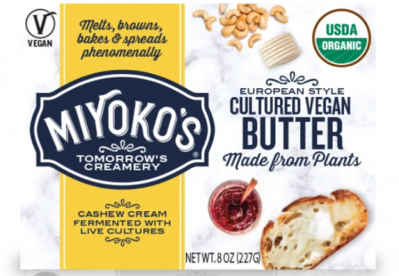Freedom for French dressing – FDA chops standard of identity for quintessential salad topping

The decision, published in the Federal Register late last week, could level the condiment playing field for French dressing, which FDA explains was once held as a benchmark for other dressings because of its “wide variation in composition to meet consumer interests,” but which has since suffered as other unrestricted dressings and condiments have innovated to meet changing consumer desires.
For example, under the old standard of identity that was established in 1950, French dressings were required to have at least 35% vegetable oil by weight, leaving ‘fat free’ or ‘low-fat’ versions vulnerable to enforcement, as unlikely as that may be, the agency acknowledged in in the notice.
The standard also stipulated that French dressing must contain an acid and could – but were not required – to include salt, tomato paste and spices.
Over the decades, however, most Americans came to expect the inclusion of tomatoes or tomato-derived ingredients, as well as a “sweet taste,” which were not specified in the standard of identity – further eroding the standard’s value.
“These varieties appear to accommodate consumer preferences and dietary restrictions,” and therefore, FDA argued, “the standard of identify for French dressing no longer promotes honest and fair dealing in the interest of consumers.”
The agency added that “revoking the standard could provide greater flexibility in the product’s manufacture, consistent with comparable, non-standardized foods available in the marketplace.”
The long-delayed decision offers only benefits, not harm, industry argues
The change, which goes into effect Feb. 14, comes more than 20 years after the Association for Dressings and Sauces filed a citizen petition asking the agency revoke the restrictive standard.
While it is unclear why the FDA took so long to act on the request, ADS said in comments responding to the proposal that it appreciates the agency “initiating rulemaking to revoke the French dressing standard” as it believes the standard “has been marginalized” by a proliferation of pourable salad dressings brought to market in the past decades and as such it only serves to restrict innovation.
It adds that removing the standard would only benefit – and not harm – the industry as the wide variety of French-style dressings on the market would continue to be available based on consumer demand.
The National Federation of Independent Business agrees eliminating the “unnecessary regulations” will provide greater flexibility to the 227 pourable French dressing products made by 53 firms.
In comments submitted to FDA it adds, in the “rare cases in which the operation of the free market does not protect consumers because a business engages in conduct with respect to French dressing that is fraudulent or poses a risk to health, state consumer protection statutes and tort law provide the appropriate remedy, without the need for federal regulations.”
Finally, while some argue that French dressing isn't very French in its flavor profile, FDA reassured concerned commenters that the rulemaking will not stop anyone from using the term -- rather it simply moves it to the unstandardized column, where most food terms reside.

















